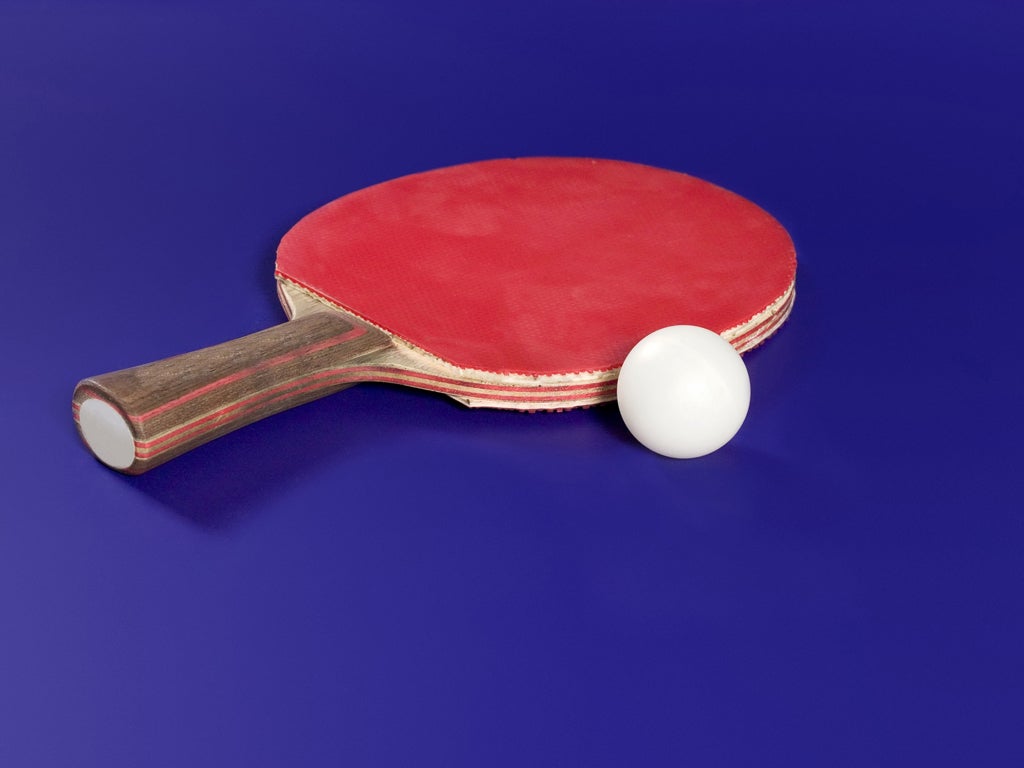Table Tennis: Why a simple game holds the key to world peace
Ping-pong diplomacy returns as 10 nations meet to defuse tensions with bat and ball

Ping-pong diplomacy will be resurrected in Qatar tomorrow, 40 years after nine tracksuited Americans arrived in Maoist China to thaw Cold War relations over a game of table tennis.
Ten nations, each with a history of bitter rivalry with one of the others, will gather together in Doha in an attempt to help to settle decades of mutual hatred with miniature bats and a very small plastic ball.
The two-day international table tennis tournament will bring some very unlikely countries together as doubles partners, including India and Pakistan, North and South Korea, and Russia and the USA. France and Japan, as well as China and Qatar, will also be paired.
The "Peace and Sport Cup" has been organised in an attempt to improve relations between countries that have experienced bitter rivalries for decades. Diplomats from the competing nations have also been invited in the hope that informal talks will take place alongside the sporting action.
Organisers hope that the sight of rival countries playing in teams together may act as an inspiration to political leaders. When a team of American ping-pong players were invited to play a friendly game in China in 1971, it was the nation's first sporting delegation to the Chinese capital since 1949. It helped to pave the way for President Nixon's official visit to Beijing the following year.
In Qatar, however, hopes for rapprochement suffered an early blow when Iran snubbed the invitation and withdrew from the competition. Tehran has offered no explanation for the withdrawal. Organisers were keen to stress there were logistical difficulties with the Iranian players having other commitments. In the end, North Korea took Iran's place. Britain was not invited to compete.
The tournament was established by the Monaco-based charity Peace and Sport and the International Table Tennis Federation (ITTF), alongside the Qatar Table Tennis Association. They plan to make the tournament a regular event in the sporting calendar.
Joël Bouzou, former World Champion in the modern pentathlon and Olympic bronze medallist, is the founder of Peace and Sport. He said: "We dreamed about resurrecting ping- pong diplomacy. Sport is about more than sport – it has the capacity to bring people together. We hope the tournament will create a new trust."
On Iran's decision not to compete, he said: "We invited Iran and they declined the offer. We hope that they will not miss this opportunity in the future."
Glenn Tepper, development director at the ITTF, said he thought table tennis was ideally suited to peace negotiations. "It's not as physical as something like rugby, so it's better as a tool for peace. We're hoping this will bring closer relations to the nations involved, particularly countries such as North and South Korea and India and Pakistan."
With a prize of US$100,000 (£63,000) at stake, the tournament is expected to be competitive. But Mr Tepper would not be drawn on which pair he expected to win, saying only: "The real point is not who will win or lose, but the symbolic gesture of playing side by side."
Subscribe to Independent Premium to bookmark this article
Want to bookmark your favourite articles and stories to read or reference later? Start your Independent Premium subscription today.

Join our commenting forum
Join thought-provoking conversations, follow other Independent readers and see their replies